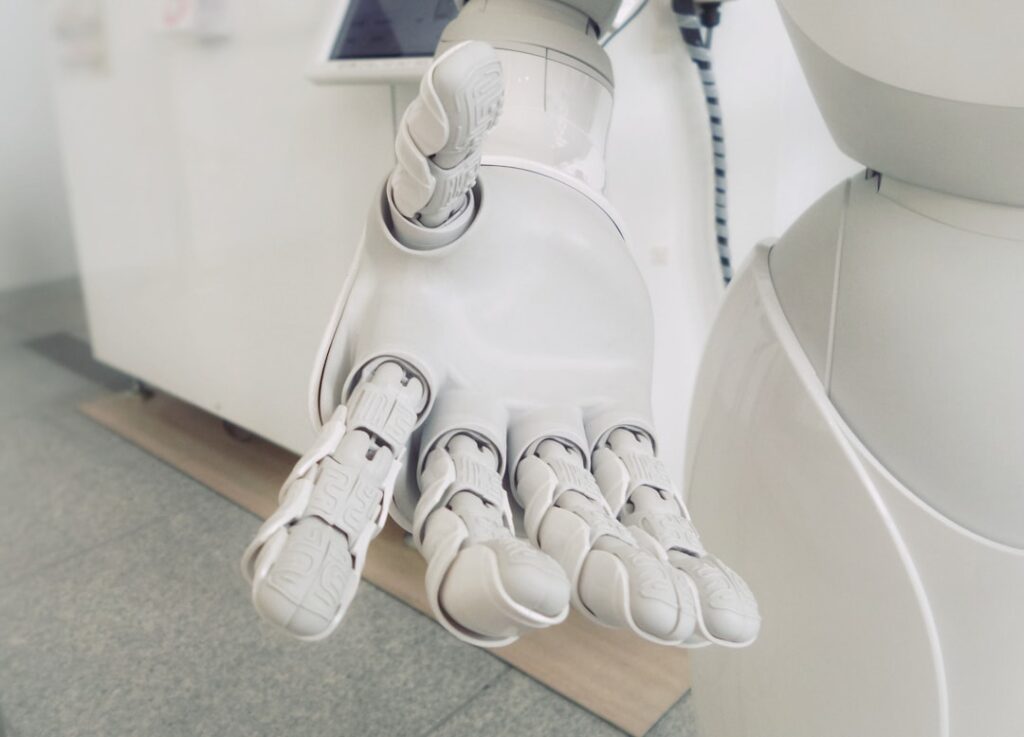Artificial Intelligence (AI) is transforming modern workplaces by simulating human intelligence processes such as learning, reasoning, and self-correction. AI’s impact on work is significant, as it enhances efficiency, streamlines processes, and can potentially replace certain human tasks. The rapid advancement of AI technology necessitates a thorough understanding of its implications for the future of work and workforce dynamics.
The integration of AI in various industries has led to substantial changes in work practices. AI applications range from automating routine tasks to analyzing complex datasets for informed decision-making. While AI offers clear benefits in terms of productivity and innovation, it also raises concerns about potential job displacement and associated ethical issues.
A comprehensive examination of AI’s current role in the workplace, its capacity to replace human labor, and the ethical and social ramifications of this shift is crucial for understanding the evolving work landscape.
The Current Role of AI in the Workplace
Streamlining Operations
AI is already making a significant impact in the workplace, with applications ranging from customer service chatbots to predictive analytics for business decision-making. In manufacturing, AI-powered robots are being used to automate repetitive tasks, increasing efficiency and reducing the risk of human error.
Enhancing Decision-Making
In the healthcare industry, AI is being used to analyze medical images and assist in diagnosing diseases. In the financial sector, AI algorithms are used for fraud detection and risk assessment. Additionally, AI is being used in marketing and sales to analyze consumer behavior and personalize customer experiences.
The Future of Work
One of the key benefits of AI in the workplace is its ability to handle large volumes of data and perform complex tasks at a speed and scale that would be impossible for humans alone. This has led to increased efficiency and productivity in many industries. However, there are concerns about the potential for AI to replace human workers, particularly in jobs that involve routine tasks that can be easily automated. As AI continues to advance, it is important to consider the potential impact on the workforce and how it will shape the future of work.
The Potential for AI to Replace Human Work

The potential for AI to replace human work is a topic of significant concern and debate. While AI has the ability to automate routine tasks and increase efficiency, there are fears that this could lead to widespread job displacement. According to a report by McKinsey Global Institute, up to 375 million workers worldwide may need to switch occupational categories by 2030 due to automation.
This raises questions about the future of work and the role of human workers in an AI-dominated workforce. AI has already demonstrated its ability to perform tasks that were once thought to be exclusive to humans, such as language translation, image recognition, and even creative endeavors like music composition and art generation. As AI technology continues to advance, it is likely that more jobs will become susceptible to automation.
This has led to concerns about job security and the potential for widespread unemployment. However, it is important to note that while AI has the potential to replace certain tasks, it also has the potential to create new opportunities and industries that have yet to be imagined.
The Ethical and Social Implications of AI in the Workplace
The integration of AI into the workplace raises important ethical and social implications that must be carefully considered. One of the primary concerns is the potential for job displacement and its impact on workers who may find themselves obsolete in an AI-dominated workforce. This raises questions about income inequality, retraining programs, and the overall well-being of workers who may be affected by automation.
Additionally, there are concerns about bias in AI algorithms, as they have been shown to reflect and even exacerbate existing societal biases. Another ethical consideration is the impact of AI on privacy and data security in the workplace. As AI systems collect and analyze vast amounts of data, there are concerns about how this information is used and protected.
Employers must navigate the ethical implications of using AI to monitor employee behavior and performance, as well as the potential for data breaches and misuse of sensitive information. It is crucial for organizations to establish clear guidelines and regulations regarding the use of AI in the workplace to ensure that ethical considerations are prioritized.
The Role of Human Workers in an AI-dominated Workforce
Despite concerns about job displacement, it is important to recognize that human workers will continue to play a crucial role in an AI-dominated workforce. While certain tasks may be automated, there are many aspects of work that require human judgment, creativity, empathy, and critical thinking skills that cannot be replicated by machines. As such, there is a need for organizations to focus on upskilling and reskilling their workforce to prepare them for the changing nature of work.
Human workers also have a unique advantage in their ability to collaborate with AI systems, leveraging their strengths to enhance productivity and innovation. By working alongside AI, human workers can focus on higher-level tasks that require complex problem-solving and strategic thinking, while leaving routine tasks to be automated. This collaboration between humans and AI has the potential to create a more dynamic and efficient workforce that can adapt to changing demands and technological advancements.
Strategies for Adapting to an AI-dominated Workforce

Developing Complementary Skills
One approach is to invest in training programs that focus on developing skills that are complementary to AI, such as critical thinking, emotional intelligence, and creativity. By empowering employees with these skills, organizations can ensure that their workforce remains relevant and adaptable in the face of automation.
Prioritizing Diversity and Inclusion
Another strategy is to prioritize diversity and inclusion in the development and deployment of AI systems. By ensuring that diverse perspectives are represented in the design and implementation of AI technology, organizations can mitigate the risk of bias and ensure that ethical considerations are prioritized.
Establishing Ethical Guidelines
Additionally, organizations can establish clear guidelines for the ethical use of AI in the workplace, including transparency about how data is collected and used, as well as mechanisms for addressing concerns about privacy and bias.
The Future of Work in the Age of AI
The future of work in the age of AI is likely to be characterized by a combination of automation, augmentation, and collaboration between humans and machines. While certain tasks may become automated, there will continue to be a need for human workers who possess skills that cannot be replicated by machines. As such, there is an opportunity for organizations to reimagine work processes and create new roles that leverage the strengths of both humans and AI.
In order to thrive in an AI-dominated workforce, organizations must prioritize investment in their workforce through training and development programs that focus on skills that are complementary to AI. Additionally, there is a need for clear regulations and guidelines regarding the ethical use of AI in the workplace, as well as efforts to mitigate bias and ensure data privacy. By taking a proactive approach to adapting to an AI-dominated workforce, organizations can position themselves for success in an increasingly automated world.
There is a fascinating article on AI in the entertainment industry that explores how AI is being used to create movie background scenes and enhance the overall production process. The article discusses the potential impact of AI on the film industry and how it is revolutionizing the way movies are made. You can read more about it here.



